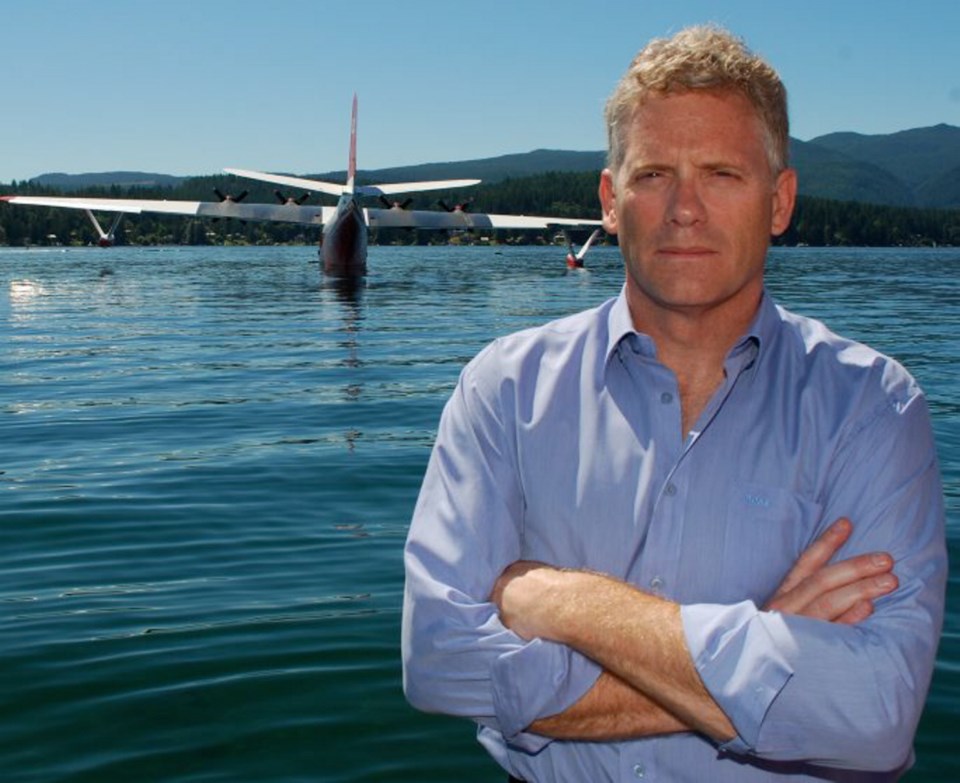The future of the last Martin Mars water bomber still in service is uncertain, now that the province has given notice that this is the last summer the aircraft, based in Port Alberni, will be given a direct-award contract.
Wayne Coulson, owner of the water bomber, said on Friday that he learned the news in a meeting with the province a few weeks ago.
A statement from the Ministry of Forests Friday said the Martin Mars has been hired each summer since 2007, and has worked on 17 fires in that time.
“Due to advances in airplane technology, there are smaller and more versatile water-scooping aircraft that do not have some of the operational limitations of the Martin Mars,” the statement said.
The province will put firefighting services out for tender in the 2014 season.
Coulson said he’s frustrated that provincial staff continue to insist the Hawaii Mars aircraft is undependable and ineffective.
“We agree to disagree,” said Coulson. “If it was about facts and cost of a delivered litre of water, we’d win, hands down.”
The aircraft may have been built in 1946, but it remains safe, he said.
The four-engine cargo transport seaplane has the largest payload capacity of water bombers in the world, carrying 27,276 litres and fire-suppressing foam.
The Mars has been on contract to the province for 400 days over six years, and the aircraft has only missed 2 1Ú2 days due to breakdowns, Coulson said.
“I’ve been down to the U.S. for 180 days, never had a breakdown down there. I’ve been to Mexico for 25 days without a breakdown. So who told [B.C. officials] that we’re unreliable? Where did that come from?”
The Martin Mars was a key player in helping to suppress the Kelowna wildfires in 2003. The aircraft has gone to Mexico and the U.S. in recent years to fight fires, but hasn’t fought a fire in B.C. for two years.
“[The province] just won’t use it,” said Coulson. “If government doesn’t believe it has value anymore, what do you do?”
Retiring its last remaining active Martin Mars aircraft would mean layoffs at Coulson’s Sproat Lake base. Negotiations are in the works to send another Martin Mars, the Philippine Mars, to a Pensacola, Florida, museum.
The news isn’t all bad for Coulson, who this week won a U.S. Forest Service contract for his C-130 water bomber, which is smaller than the Mars and built in 1981.
It’s unclear what will happen to the Hawaii Mars. “We spent multi-millions of dollars on the airplane to make it safer and more reliable. It was to make that airplane the best it could be,” said Coulson.
“There maybe something else in the world that it could do, but I don’t know what that would be.”
The two Martin Mars were used as troop carriers for the U.S. navy before being sold to Forest Industries Flying Tankers, a consortium of forest companies, which used them to fight wildfires in B.C.
Coulson bought them in 2006, retired the Philippine Mars soon after and invested millions in the Hawaii Mars and a “bird dog” helicopter.
The Hawaii Mars was recently featured on the Discovery Channel’s series Mighty Planes.



